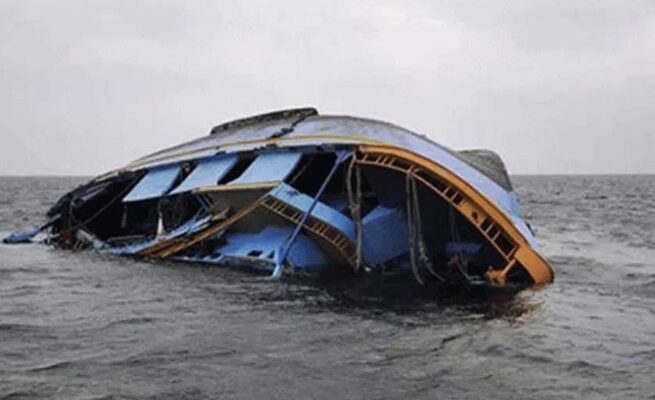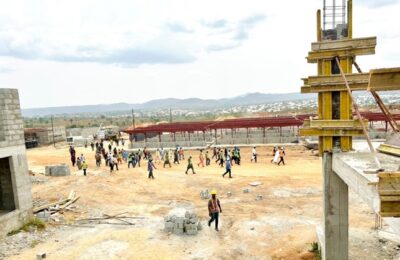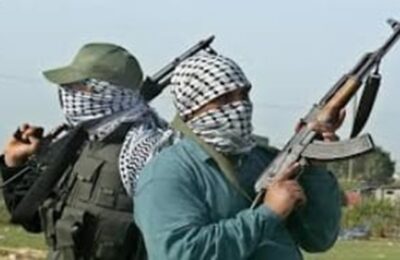In the fading dusk of Kogi’s southern frontier, the River Niger swallowed yet another vessel — another requiem of sorrow, ignorance, and governmental abdication. The National Emergency Management Agency (NEMA) confirms 24 rescued, 14 dead, and 42 still missing after an overloaded wooden boat capsized in Ibaji Local Government Area, a riverine region where water is both lifeline and grave.
This is not an isolated tragedy; it is a ritual of recurrence. Year after year, the Niger claims new victims — farmers, traders, children — citizens ensnared by the lethal fusion of ignorance, poverty, and neglect. In the floodplains of Ibaji, Idah, and Bassa, river transport is an obligation, not a luxury, yet safety remains a foreign concept. Passengers embark without life jackets; operators overload creaking boats; regulations lie dormant.
“People here don’t see life jackets as necessary,” laments Ocheja Adams, a community leader in Idah. “They think fate or prayer will save them. That belief is burying us.”
But ignorance alone does not anchor this tragedy — it is compounded by a government’s faltering conscience. Instead of fixing its falcon eye on the treacherous Niger, the state’s attention drifts toward petroleum explorations newly discovered in Ibaji, and the political theatrics designed to consolidate power. While leaders dig for oil and engineer alliances, the people drown — unseen, unheard, unprotected.
Across Ibaji, entire communities exist without standard schools, without qualified or no teachers, without a glimmer of enlightenment. Children grow beside the farmland and river with no education, no awareness, no safety knowledge, inheriting the same vulnerability that claimed their parents. Floods erase roads, isolation deepens, and the absence of infrastructure strangles hope. In these forgotten corners, ignorance is not a choice; it is the consequence of abandonment.
“We are tired of condolences,” cries Esther Ajana, whose husband remains missing. “They promise us boats, jackets, and roads. Instead, they give speeches and pipelines.”
The result is a devastating paradox: while the state unearths oil beneath Ibaji’s soil, its people drown above it. Progress, it seems, flows only toward political gain, not public good.
NEMA’s grim records recount over 150 deaths across Kogi’s waterways within three years. Yet each calamity dissolves into silence, unaccompanied by reform. Boat operators remain untrained; vessels unregistered; communities uneducated. Condolence replaces accountability, and grief becomes governance.
“Ignorance is the deadliest passenger on every boat in Kogi,” declares Dr. Hassan Yakubu, a disaster risk analyst. “Until the mind is enlightened, the river will continue to consume.”
Still, leadership slumbers. The Ministry of Transportation’s promises of safety reform are trapped in the labyrinth of bureaucracy. The Nigerian Inland Waterways Authority (NIWA) makes faint gestures — distributing life jackets, conducting token workshops — yet the vast river remains unconquered by conscience.
The Niger, majestic yet merciless, flows through these communities as both sustenance and sentence. Its tides mirror the neglect of a system that extracts resources but invests little in the lives it endangers. In Ibaji, the irony is cruel: oil flows, but education stagnates; resources abound, yet rescue is absent.
“We don’t have roads half the year,” says John Omale, a farmer from Onyedega. “Boats are our only option — but they are coffins in waiting.”
For every submerged vessel, a story of governance failure surfaces. The absence of enlightenment, infrastructure, and emergency response has turned Kogi’s waterways into mass graves of avoidable death. Each candlelit vigil is a testament to lives lost not to destiny, but to deliberate dereliction.
Yet hope lingers, fragile as a ripple. Advocates demand a renaissance of awareness, enforcement of maritime laws, investment in rescue units, and education as a shield against ignorance. They urge the government to redirect its gaze — from oil wells to human welfare, from political intrigues to public safety.
“Safety must become instinctive — not optional,” insists Musa Haruna, NIWA’s regional director. “Until that day, the river will remain our greatest teacher — and our harshest judge.”
In the twilight along the Niger, families light candles for the drowned, their reflections shimmering across the current. The river hums its eternal dirge — a requiem for lives unlived and lessons unlearned.
“The river should give us life, not take it,” whispers Blessing Ekele, a survivor now inseparable from her life jacket. “We did not know better. Now we do — but too late.”
Until knowledge becomes policy, and conscience becomes action, Ibaji’s waters will continue to baptize ignorance with blood.
– Inah Boniface Ocholi writes from Ayah – Igalamela/Odolu LGA, Kogi state.
08152094428 (SMS Only)




